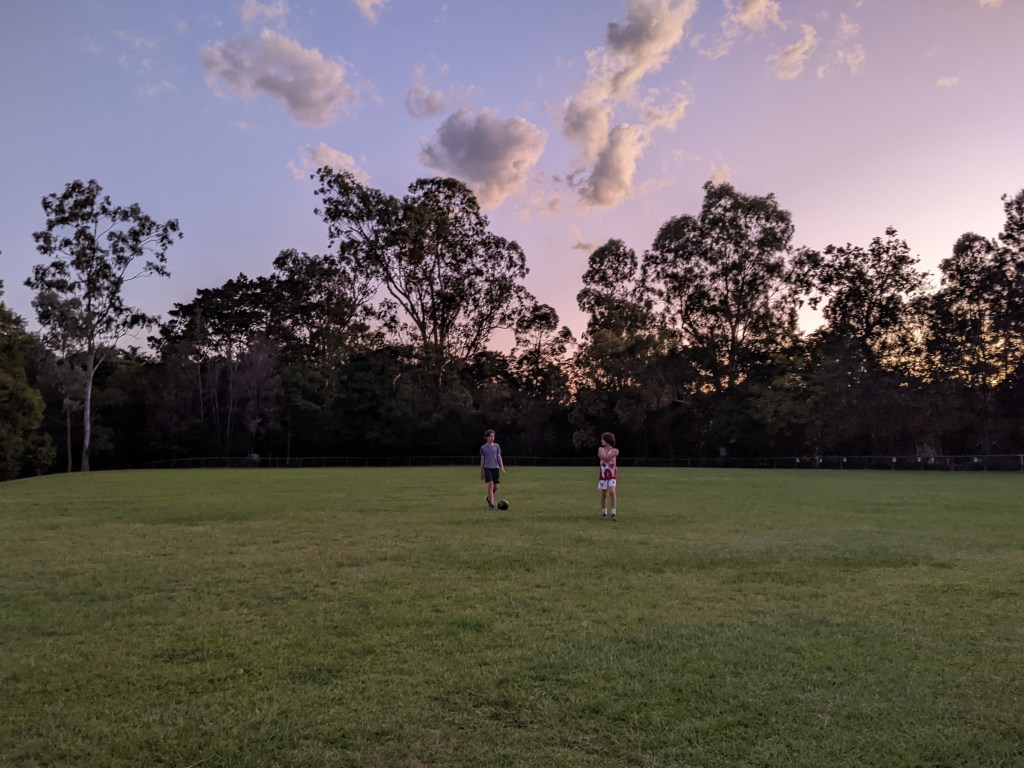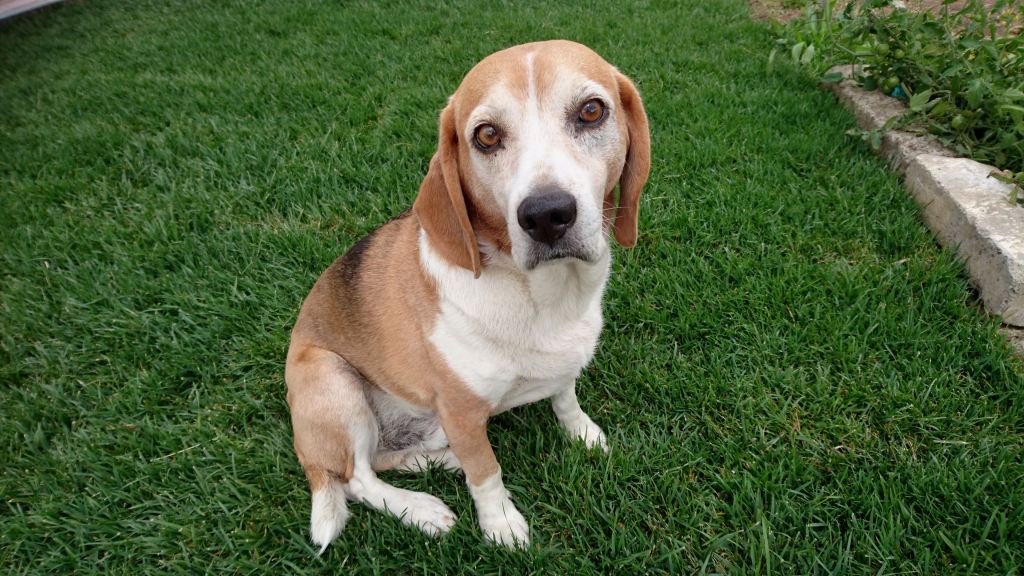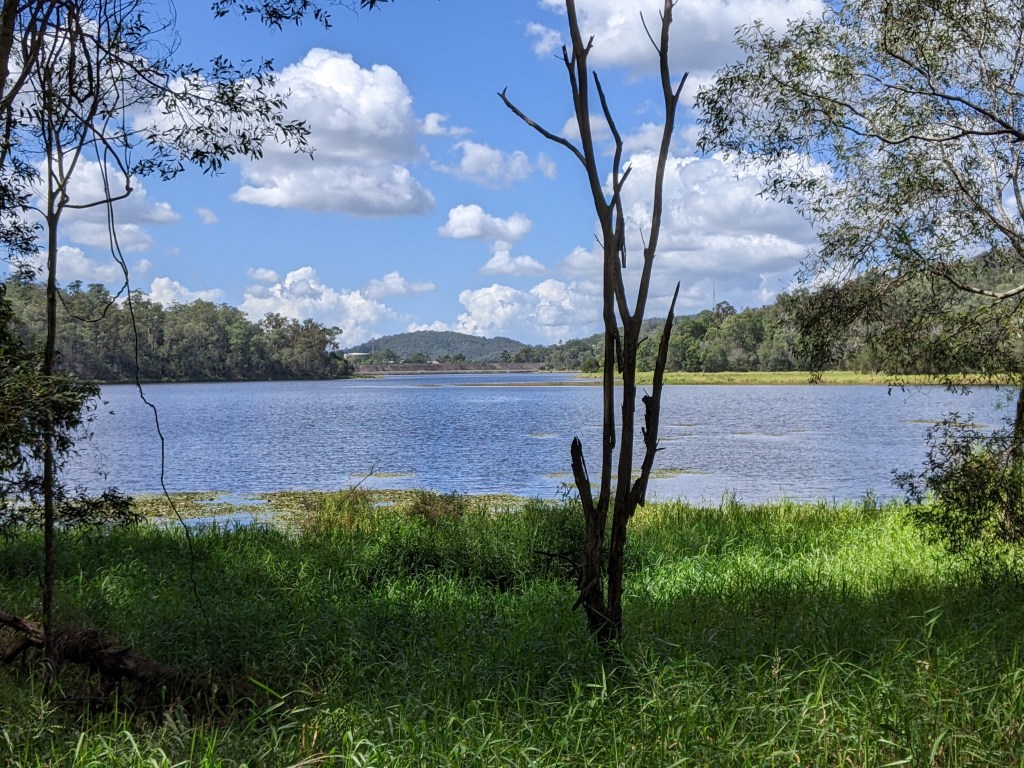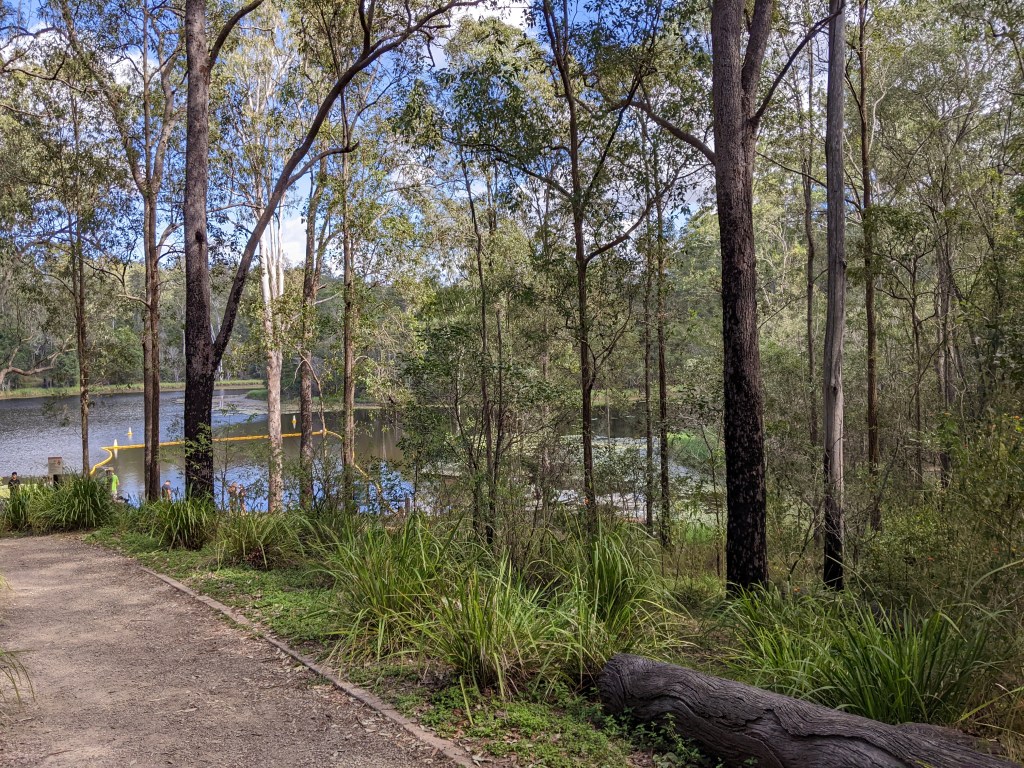Ours for Ever: 2023, the Year that Was
In the third of his eponymous journeys, the fictional psychiatrist, Hector, goes in search of time. Early on, he has a vivid dream in which he is travelling on an empty train. Whilst moving between compartments, he notices something odd:
[that] the faster he walked up the corridor, the more train slowed down … If Hector stopped walking altogether to get a better view, the train would speed up, which was a little annoying.
I’ve been thinking about time a lot lately. Encounters with death, disease and decay have given me a jolt. Our days – my days – are clearly numbered.
‘We can ask and ask but we can’t have again what once seemed ours for ever,’ the narrator of J.L. Carr’s A Month in the Country observes.
2023. We can’t have it again but we can retrace its steps – in my case with the help of the diary I kept. Here, then, are its highs and lows…
The year began with a crossing, as my wife, kids and dog joined me in Brisbane following a week-long road (and ferry) trip that began in Hobart.
Well, we made it to Brizzie, at about four p.m. yesterday, and with nothing going horribly wrong. No crashes or conflict; no breakdowns or breakups. A couple of missteps (wrong turns and what-not), but no real mishaps.
‘Sorting In’, 4:35 am, Thursday, 12 January 2023

Would I be able to adapt to our new life together in Queensland, having spent a year here alone? Before we set out, I wasn’t so sure…
I learned that I can get on with dudes, that I enjoy helping peeps, that I’m a misanthropic loser only some of the time. All very useful [insights], I’m sure, but can the ‘new’ Timm co-exist with the ‘old’ Timm, the father and ‘usband? New year, new challenge.
‘End Game’, 5:46 am, Saturday, 31 December 2022
But I needn’t have worried so much.
Me and the wife … are getting on well, and I reckon we can make a go of it. Yippee!
‘Sowing the Seed’, 6:23 am, Monday, 16 January 2023
For the first time in their lives, my son and daughter changed schools. A stressful experience? Not so much.
The kids went well yesterday. A was very calm and composed, taking himself off to [high] school by himself. E did really well too, playing with another new kid and then with older kids on the basketball court, even scoring a basket. Phew – they’re gonna be okay!
‘A Welcome Fail’, 5:00 am, Tuesday, 24 January 2023

New year, same old job for me. Surprise, surprise – I wasn’t enjoying it.
Hence the need to bite the bullet and write a bestseller using every spare minute I have. That’s my aim for the year.
‘Publish or Perish’, 4:43 am, Tuesday, 31 January 2023
And write I did, finishing the first few chapters of a steamy thriller called Under Your Skin before losing hope. Elsewhere, my hopes were realised…
E loved her band rehearsal yesterday. She said she felt like crying at first, but then her band leader made everything so easy. And playing the pieces was so much fun. What. A. Relief. How happy am I!
‘High Note’, 4:19 am, Wednesday, 8 February 2023
Work continued to irk me and some weeks we barely managed to pay the rent. Then our elderly beagle, Roy, left us, having seen us safely into our new home.
Yesterday I took him to the see the vet, and the vet was categorical: there was no hope for the old fella … I was staring into his eyes as he went still, as the light … went out.
‘Sleeping Dogs’, 3:54 pm, Saturday, 25 March 2023

But life went on and we passed another milestone.
A’s birthday! He is officially a teen, even though he’s been behaving like one for months. (In a good way.)
‘Fickle Friend’, 4:36 am, Tuesday, 4 April 2023
As for my wife’s attempt to find work – it worked!
She had her first day yesterday as a permanent employee at the Ipswich Library.
‘Hot and Sticky’, 4:44 am, Friday, 17 November 2023
Some things were music to our ears.
A was awarded a Certificate of Distinction for music at his school last night.
‘In a Fog’, 5.20 am, Saturday, 25 November 2023
As it happened, the year ended positively. Positively negative.
Two nights ago AJ took a Covid test. Positive. I did the same. Positive too! Having dodged it for years, I’ve now got this much-storied virus.
‘Positively Positive’, 5:52 am, Wednesday, 20 December 2023
In reflection, the year – for me – was long, for I kept looking, failing, learning. The more I struggled and strove, the slower time’s train moved on.
2023. For a whole year it was ours for ever.
Dear Diary: Finger-pickin’ Good
I love maths. Well, I love digits. Actually, what I love is my fingers.
(Are, asks the pirate.)
Speaking of bad starts, here’s a really good one from the biggest book since war teamed up with peace:
He speaks in your voice, American, and there’s a shine in his eye that’s halfway hopeful.
Yes, I’ve started reading another novel: Don Delillo’s Underworld. The first chapter is a cracker and has got me all excited again about words. (Or whyeds, speaking in your voice, American.)
Overnight, Iga Swaitek won her fourth French Open and yesterday the Hawks beat GWS to flap themselves into finals contention.
Speaking of which, I think I’m back in the game, following a monster musical session yesterday morn. Using my fingers (those on my hands and in my head), I reckon I’ve picked the lock to musical freedom, cracked the safe housing sound delights.
Hyperbole or just an average amount of perbole?
Either way, my fingers are flying over the keyboard, as I play my pieces, practise scales and arr-peggios (as the pirate says) – and as I kinda improvise, kinda using the kinda knowledge I’m kinda accreting about modes.
Obviously a lot of it is physical: I’ve put in the hours of repetition repetition, playing, playing, playing. But there’s a mindset that goes with it. A devil-may-care swashbuckling parrot-on-the-shoulder walking-the-plank psychological swagger.
A looseness and a loudness. (And an allowed-ness.)
I’m feeling it in my singing and trumpet-playing too, as well as on the drums.
Thanks universe!
Today? E’s soccer, shopping, lunch with P and V, maybe some tennis with M and G, and definitely more music.
Shiver me timbres!
Tattoos and Ice Cream: Mr Nobody’s Guide to Nothing
Hi.
Fuck I hate hi. Hi is for teenagers. Hi is something we should grow out of, along with sushi and ice cream.
And while I’m at it…
Fuck I hate fuck. Who said it’s suddenly okay swear in public? Not my mum. Fuck is something we should never grow into, along with tattoos and muscles.
God doesn’t exist, but I bet he’s angry anyway. I know, because I don’t exist and I’m angry.
Fudging angry.
I’m angry because I’m Mr Nobody and because I’m being forced to write this newsletter about nothing.
Okay, so there’s no-one here with tattoos pointing a gun at my head and asking for ice cream and telling me, Mr Nobody, to hurry the fudge up and write a newsletter, and to make sure it’s called ‘Mr Nobody’s Guide to Nothing’.
No, there ain’t. (If you don’t count God.) But there might as well be.
Because I just made a big mistake. I read something – a newsletter, in fact. And? And that’s the big mistake, you fudger – reading, just reading.
I read that to be someone these days – to be Mr Nobody even – you have to promote the fudge out of yourself online, even if it means you don’t have time to do anything else – anything meaningful, I mean.
Well, I’ve ticked that box – the not doing anything meaningful box – so what’s stopping me promoting the fudge out of myself online? Nothing, if by nothing you mean the no-one who’s not here pointing ice cream at my tattoos and asking for fudge.
Fudge?
Fuck off.
[Photo by Massimo Adami on Unsplash]
The Play’s the Thing: On Being the Bearded Boy
For every action there’s a reaction – or, in my case, an over-reaction.
Not long ago I got some bad news: Jesus doesn’t want me for a sunbeam. My dream job wasn’t mine after all.
It was a blow, of course, and one I responded to in the usual way: I spat the dummy.
That’s it, I thought, angrily. No more working for the man. From now on I’m going it alone. As a writer. On Substack. Because ‘writers earn a living doing what they love’ on the Stack.
Okay. But which writers?
Writers like me, surely. Writers brimming with brilliant ideas.
Brilliant ideas like… The Bearded Boy!
He turned fifty last year, the bearded one. Me, I turned fifteen. Together we’re Timm – puzzled parent, partner and employee, perennial pupil and apprentice. Join us on the front line of our privileged yet perplexing life as we struggle to square the circle of existence.
Angst-ridden analysis of the absurdities of adulthood – that’s what it was supposedly all about.
No-one hates waste more than a wannabe writer. Here, then, are some ‘highlights’ from the Boy’s first (aborted) bulletin…
I just don’t get it. I’m clearly a genius and yet I’m still expected to prove it.
People won’t publish my (brilliant) books until I write them, or give me PhD scholarships until I apply for them. And they won’t give me the job I want until I stump up evidence of my awesomeness, as if I’m competing in a country fete.
And even when I do they’re still not convinced that I’m the best bloke since sliced bread – me, the Bearded Boy! It’s enough to make a (half)grown man cry (and start his own Substack newsletter).
Adult life is all about destinations, dead ends, standing still. I want to keep moving. I haven’t got time to stop and tell you where I’m going. I don’t know!
The bearded one wants me to redirect the river, so I can reach my destination sooner, so I can cash in at the casino where I’ll win big. But I just want to be washed along, to ride the rapids. Eventually I’ll arrive at the sea, where I’ll sail, like Reepicheep, into the sunset, into the next great unknown.
My genius isn’t for ‘results’. Indeed, it spurns and despises such illusions. I don’t ‘achieve outcomes’, I mess about. The play’s the thing. And I don’t do it because it’s good for me or for the world – I do it because I’m a bearded boy and I have to. (I’m playing now.)
If you get it, I salute you. Together let’s celebrate all things ineffectual and unfinished. The Bearded Boy is nothing if not half-baked. All ends are dead. Childhood is too good to be left to the kids.
And finally: When you’re finished you’re finished.
One day I might return to the Stack. Now, though, I’m off to start something else.
Regulation Punishment: Exploring the D’Aguilar National Park (Part 1)
Of all the good things my new home in Brisbane has to offer, the D’Ag is probably the best.
A boot-shaped strip of bushland whose toe has a hold in the city’s western suburbs and whose top touches on the southern fringes of the Sunshine Coast Hinterland, the D’Aguilar National Park sports the usual array of natural sights and sounds, native plants and animals.
According to the experts, visitors can expect to experience rugged gorges, rock pools and rainforests, not to mention bopple nut trees, Hiller’s snub-nosed katydids and Mount Glorious torrent frogs.
Okay, so maybe not the frogs, torrents of which there are not. (The species hasn’t been seen since 1979.)
In fact, the least interesting thing about the D’ag is its name. Situated on land traditionally owned by the Jinibara people, the park bears – with awful irony – the name of George D’Aguilar, the author of Regulations and Punishments of the British Army, a best-selling textbook from the early 1800s.
Three hours into our walk around the Enoggera Reservoir, a lake located at the tip of the park’s toe, this seemed all too appropriate: me and my family were experiencing the regulation punishment – the pain that usually accompanies such expeditions.

We set out just after ten on a Saturday morning, me, my wife, and our son (13) and daughter (9), driven by my sudden desire to get back to nature and by my wife’s love of bushwalking.
Despite a few difficulties, the ensuing seven-kilometre hike had its highlights.
Early on we narrowly missed being mobbed by a wave of water-borne tourists.

The track wove its way through trees aplenty – some wearing wasps’ nests like bumbags and others playing dress-ups with ‘grandfather’s whiskers’ (a kind of moss).

At times we wondered for whom the bell birds tolled, for toll they did.
We kept catching tantalising glimpses of our destination – the dam wall.

We stopped for lunch – bread, cheese, relish, grapes and nuts – in a shady grove not far from Enoggera Creek itself. Several groups of walkers went by, and the kids begged me (in vain) not to greet each one with my joke of the moment: ‘Ah, there you are – just in time for lunch!’
Back on the track, we day-dreamed about swimming across the lake’s narrowest arm, but the shore was choked with water lilies.

Around one bend we witnessed wildlife of a different kind: teenage boys swinging from the trees.

And then, at long last, we reached our destination – the ‘damn’ wall. As big as it was, it couldn’t contain our relief.

The worst, however, was yet to come.
Stumbling into the park’s ‘Discovery Centre’, we discovered that the café was about to close. For a moment we faced an uncertain future – one averted by take-away milkshakes and a long-awaited swim.
We’d made it!
Lolling by the lake, the trials and tribulations of our walk already half-forgotten, we vowed we’d return to explore more of the park.
Well, I did.

Circe’s Wise Words (Resisting the Song of the Sirens)
I heard a song on the radio recently as I was driving home. I didn’t catch its name, but I caught the name of the band.
Guided by Voices.
We’re all guided by something.
Sometimes it’s a grumble in our guts, the murmur of our hearts or lewd whispers emanating from somewhere much lower.
Occasionally conscience calls.
Mostly, though, we’re led on by the voices in our heads.
In Greek mythology a Siren is a creature – half bird, half woman – that lures sailors to their doom with its singing.
Odysseus encounters two such creatures as he sails home from Troy. Heeding Circe’s wise words, he has himself lashed to the mast so he can’t steer his ship on to the rocks.
Now, to resist the Sirens’ song, I too have tied myself down, although not to a boat but a bus – the Bridges Omnibus.
[Image from SPHS]
Caliban’s Rage (Seeing and Not Seeing My Face in a Mirror)
I’m fifty and I’ve still got a full head of hair. That’s a good thing, right?
Wrong. My locks, I tell you, have got me tied up in knots.
It’s those men and their amazing reflecting machines – mirrors, they call them.
Ostensibly aids in the trimming of hair, these dastardly devices serve a more sinister purpose: they cut characters like me down to size.
Which brings me to Shakespeare’s Tempest.
According to Oscar Wilde, Caliban is infuriated by seeing – and not seeing – his face in a glass. His rage, Oscar argues, accounts for the ‘nineteenth century dislike’ of realism and romanticism alike.
Call me Caliban.
What I see in a mirror is my face and yet it’s not; the reflection is real enough and yet it shatters my illusions.
It’s enough to drive a man mad – and to steer me clear of barbers’ scissors.
[Image from The Met]
Why I Write (And Why I Don’t Care that Nobody Cares)
Why do I write?
It’s a question no-one wants answered – no-one but me, that is.
And that’s the point.
I write for myself. Partly because I love piecing words together and solving puzzles; partly because I love the way words look in print, and how they sometimes shine with insight.
I do it, too, because I love learning.
In other words, I’m an amateur – and a proud one to boot.
See what I mean? For me, those two weird little words make this piece worthwhile.
To boot.
Is that me, the writer, putting my foot down – or getting it stuck in my mouth?
One in a thousand wannabes make a living from writing; even fewer win fame and fortune. Writing for money is a gamble.
I can buy me a lottery ticket but I can’t buy me love. Love must be made.
By writing.
Ghost Writing (Johnno, Dante and David Malouf)
I’m not normally a fan of horror stories and yet I’ve found David Malouf’s Johnno a fascinating read.
Ostensibly a book about two boys growing up and out of Brisbane in the days before it became a city, Johnno is actually about possession – about two opposing figures trying to win the other over.
Johnno’s the hero. He’s daring, disorderly and dangerous, a restless irresistible rebel.
The narrator, Dante, is the author’s alter ego. He haunts the story, refusing to declare himself, relentlessly evading capture – by his father, his birthplace and his friend.
‘I’ve spent years writing letters to you and you never answer, even when you write back,’ Johnno complains.
Johnno, the novel, is the author’s brutal belated reply.
When it appeared, in 1975, Johnno the man was long-dead and Dante had won, having taken possession of his friend as only a writer can.
Man of Many Parts: Shakespeare, Modern-day Novelist
Since his death Shakespeare has had a long and illustrious career, playing many memorable parts: immortal bard, literary imposter and, somewhat improbably for an upstart crow, a swan.
Recently, Will has even been cast as a shiftless time-waster – a timeless shape-shifter, I mean.
Clearly, Shakespeare has been many things to many people. In his lifetime, though, he was simply many things full stop. The son of a glove-maker, Will turned his hand to one vocation after another – actor, poet, playwright, investor, producer – acing them all. And yet he never became a novelist – unsurprisingly, perhaps, since in his day the first English novel, Robinson Crusoe, was over a century away.
Back then, the future, too, was still to come, as was our current century – the twenty-first.
Would Shakespeare make it as an author today? Would he ever! To my mind, Will is the very model of a modern-day novelist.
I came to this startling conclusion a week ago, while pretending to write a proposal for a PhD project located in the city from which I’d fled last year, a project entitled ‘The Novel in the 21st Century: Reading Contemporary Book Culture’.
I read novels in the 21st century, I thought. I’m qualified to critique the state of the art. And yet part of me wasn’t so sure. I’d failed to finish any of my forays into long-form fiction, after all, let alone have one published.
Deflated, I wondered why. Robinson Crusoe had appeared long ago, so I couldn’t use Shakespeare’s excuse. Was I simply a shiftless time-waster?
And then it struck me. Shakespeare!
I haven’t made it as a novelist because I’m not like Will.
New-age novelists don’t sit lord-like in an inky tower, channelling unchallengeable wisdom, painstakingly making immutable monuments designed to be decoded in private. They’re performers who collaborate like playwrights and play many parts.
The novel of now isn’t a big book thick with detail and description, whose life is strung along lines and bounded by covers. It’s a set of directions aimed at activating an audience and spawning new stories – a staged production, no less.
For a time Shakespeare was based at the Globe Theatre in London. There, during performances, actors and audience, playwrights and producers alike would interact, working as one to put on a play.
Literature is theatre once again. Today’s stories, though, are told on a truly global scale, woven in a web populated by people working with a will, like a Will.
Until I join their ranks I might as well hang up my pen and paper.
[Artwork from OpenArt]